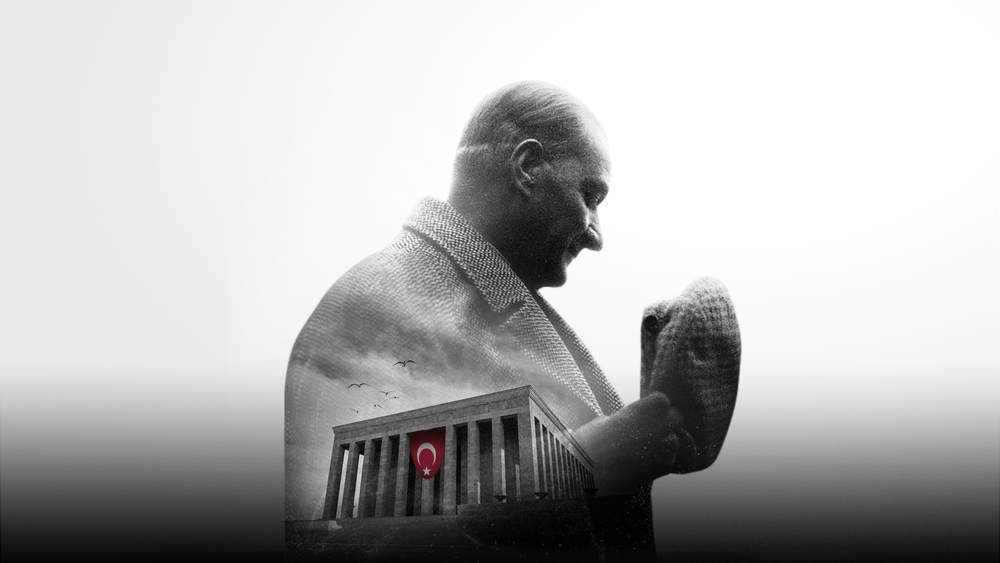Mustafa Kemal Atatürk[1], the visionary leader and founder of modern Turkey, left an indelible mark on the nation’s history. While directly linking historical figures to modern mental health care may pose challenges, exploring Atatürk’s principles offers insightful parallels to fostering mental well-being through social reforms, education, and a forward-looking perspective.
Educational Transformation for Enlightened Minds:
Atatürk’s commitment to education aligns with the importance of knowledge and mental health literacy.[2] Fostering educational initiatives contributes to a society that is better equipped to understand, discuss, and address mental health challenges.
Equality and Inclusivity as Pillars of Well-Being:
Atatürk’s emphasis on equality and inclusivity[3] resonates with the principles of creating a supportive environment for mental health. Promoting equality reduces stigma and ensures that mental health resources are accessible to all, contributing to emotional resilience.
Secularism and Freedom of Thought:
Atatürk’s advocacy for secularism[4] encourages an environment where diverse perspectives on mental health can coexist. Ensuring freedom of thought contributes to a more open dialogue about mental health issues, reducing societal pressures and fostering understanding.
Modernization for Societal Well-Being:
Atatürk’s drive for modernization[5] correlates with the need for contemporary mental health care approaches. Embracing modern methods and technologies in mental health services ensures that individuals receive the most effective and efficient support.
Forward-Looking Approach to Societal Progress:
Atatürk’s forward-looking vision encourages a proactive approach to societal challenges, including mental health. Creating strategies for mental health promotion and early intervention aligns with Atatürk’s commitment to continuous improvement.[6]
Implementing Atatürk’s principles in mental healthcare involves promoting education and mental health literacy, fostering equality and inclusivity, embracing secularism for diverse perspectives, incorporating modern methods, and adopting a forward-looking approach.[7] Mental health professionals can actively contribute by integrating these principles into therapeutic approaches, creating environments that support individuals on their mental well-being journeys within a framework inspired by Atatürk’s vision.
In conclusion, Mustafa Kemal Atatürk’s[8] transformative leadership provides valuable lessons for mental health care. While the approach to well-being has evolved, drawing inspiration from Atatürk’s emphasis on education, equality, secularism, modernization, and a forward-looking perspective can contribute to creating environments that positively influence individuals’ mental health in the present day.
[1] Mango, Andrew. Atatürk: The biography of the founder of modern Turkey. Abrams, 2002.
[2] Unal, Birsen. “Education policies during Ataturk period.” Procedia-Social and Behavioral Sciences 174 (2015): 1717-1722.
[3] Gawrych, George W. “Equality and Diversity in the Late Ottoman Empire and Modern Turkey.” Equality: More or Less (2019): 19.
[4] Özdalga, Elisabeth. “Secularism.” The Routledge handbook of modern Turkey. Routledge, 2013. 205-216.
[5] Ab Rahman, Asyraf Hj, et al. “Modernization of Turkey under Kamal Ataturk.” Asian Social Science 11.4 (2015): 202.
[6] Haynes, Jeffrey. “Politics, identity and religion in Turkey: From Atatürk to the AKP.” The Routledge Handbook of Religion, Politics and Ideology. Routledge, 2021. 302-313.
[7] Ince, Basak. Citizenship and Identity in Turkey: From Atatürk s Republic to the Present Day. Bloomsbury Publishing, 2012.
[8] Cloudsley, Tim. “Who and What Was Atatürk?.” The European Legacy 19.3 (2014): 368-381.

